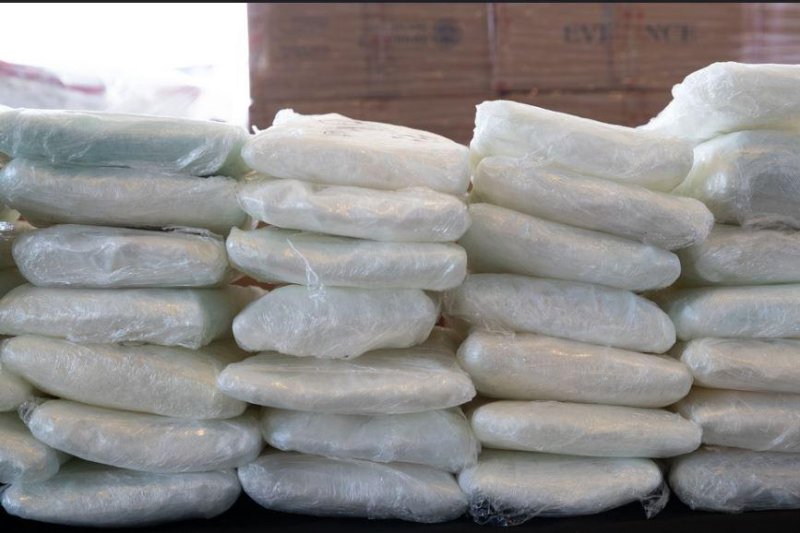U.S. Customs and Border Control agents display illegal fentanyl seized at the U.S. border in January 2019. China announced tighter curbs on fentanyl and fentanyl-related substances on Monday. Photo courtesy of U.S. Customs and Border Patrol
April 1 (UPI) -- The Chinese government said Monday it will step up efforts to curb the manufacture and export of synthetic forms of the opioid fentanyl, as a response to requests from the U.S. government.
Beijing said all fentanyl-related substances will be added to a list of controlled substances beginning on May 1. The move is expected to provide a legal basis to crack down on crimes involving the opioid -- as well as prevent large scale production, trafficking and export of the drugs. The decision was announced Monday by China's Ministry of Public Security, National Health Commission and National Medical Products Administration.
In a radical departure from international law, the measure also bans altering the drug's chemical structure to get around the law.
The announcement came three days before a new round of trade talks this week between the United States and China, and fulfills a pledge Chinese President Xi Jinping made to U.S. President Donald Trump when they met in December. In 2017, China banned the manufacture and sale of four types of synthetic fentanyl, and later expanded the ban to include 17 other types.
Trump has accused China of moving too slowly to ban exports of the opioid, which the U.S. Centers for Disease Control and Prevention says caused 18,000 overdose deaths in the United States in 2016.
"The U.S. is concerned about all variants [of fentanyl], and it's all been resolved," said Liu Yuejin, deputy director of China's National Narcotics Control Commission. Liu, though, denied China was responsible for the U.S. opioid epidemic.
"We believe the overdose problem in the United States is mainly caused by domestic reasons," he said, adding that the new rules show Beijing is taking the matter seriously.
Addictive and deadly, fentanyl is one of the world's most powerful and dangerous narcotics, about 100 times more potent than morphine. In the past, Trump has said China is the main source of the drug.















